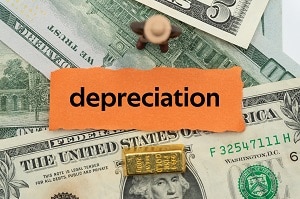
Business Advisory Services
Everything you need to help you launch your new business entity from business entity selection to multiple-entity business structures.
Table Of Contents

Posted Monday, August 5 2024
What is the difference between 27.5 years and 39.0 years for rental property depreciation? 27.5 years is used primarily for residential properties whereas 39.0 years is used for commercial properties including nonresidential properties.
Recall in our discussions about Qualified Improvement Property (QIP) where we defined nonresidential properties. We started with IRC Section 168(e)(2) which states that residential properties obtain rental income from dwelling properties. Within the same section, a dwelling unit does not include transient tenants or guests. Later, in a Private Letter Ruling, the IRS defined transient tenants as those who stay 30 days or less.
As such, if your rental property has tenants who stay 30 days or less, it is considered nonresidential and is depreciated over 39.0 years. This was a quick summary. A more in-depth analysis was done in our section on QIP.
Why did the IRS, Treasury, Congress and everyone define it this way? The original intent was to prevent real estate investors from using 27.5 years of depreciation versus 39.0 years. In other words, by calling a rental property a residential property, they were able to shrink the depreciation schedule (and increase current year depreciation deductions).
Two scenarios might exist in what the regulations call a change in use-
The question becomes- is this change in depreciation considered a change in accounting method that would otherwise require Form 3115 to be filed? Short-answer, No.
A change in computing the depreciation allowance in the year of change for property is not a change in method of accounting. Specifically, Treasury Regulations Section 1.168(i)-4(f) reads-
(f) No change in accounting method. A change in computing the depreciation allowance in the year of change for property subject to this section is not a change in method of accounting under section 446(e). See § 1.446-1(e)(2)(ii)(d)(3)(ii).
Treasury Regulations Section 1.446-1(e)(2)(ii)(d)(3)(i) and (ii), deep deep deep into the regulation, reads in part-
(3) Changes in depreciation or amortization that are not a change in method of accounting. Section 1.446-1(e)(2)(ii)(b) applies to determine whether a change in depreciation or amortization is not a change in method of accounting. Further, the following changes in depreciation or amortization are not a change in method of accounting:
(i) Useful life. An adjustment in the useful life of a depreciable or amortizable asset for which depreciation is determined under section 167 … is not a change in method of accounting.
(ii) Change in use. A change in computing depreciation or amortization allowances in the taxable year in which the use of an asset changes in the hands of the same taxpayer is not a change in method of accounting.
Treasury Regulations 1.168(i)-4(d)(4) reads in part-
Change in the use results in a longer recovery period and/or a slower depreciation method—(i) Treated as originally placed in service with longer recovery period and/or slower depreciation method.
In this case you would adjust the remaining depreciation schedule to reflect 39.0 years as if 39.0 years was selected originally when the rental property was placed in service.
Treasury Regulations 1.168(i)-4(d)(4) reads in part-
(3) Change in the use results in a shorter recovery period and/or a more accelerated depreciation method—(i) Treated as placed in service in the year of change.
This one is a bit more onerous since you don’t get “time credit” for the years the rental property was already in service and being depreciated. For example, if you are on year 5 and flip from 39.0 to 27.5 years, you would have 4 years of historical depreciation plus another 27.5 years of remaining depreciation.
Property affected by the change-in-use regulations is not eligible for bonus depreciation deductions in the year of change or IRC Section 179 expensing.
This section only considers changes in depreciation under IRC Section 167 and we intentionally omit changes under IRC Section 168 in connection with Section 167 which is for tangible property. Specifically, and with full nerdy accounting lingo, IRC Section 167(a) permits a depreciation deduction for the exhaustion and wear and tear of property used in a trade or business or held for the production of income (like rental properties).
IRC Section 168 sets forth the methods, periods, and conventions by which a rental property owner can depreciate tangible property as permitted by IRC Section 167(a). You would likely see tangible property or what some would call personal property be depreciated separately as a result of a cost segregation study.
Feel better? Unlikely. Our apologies.
